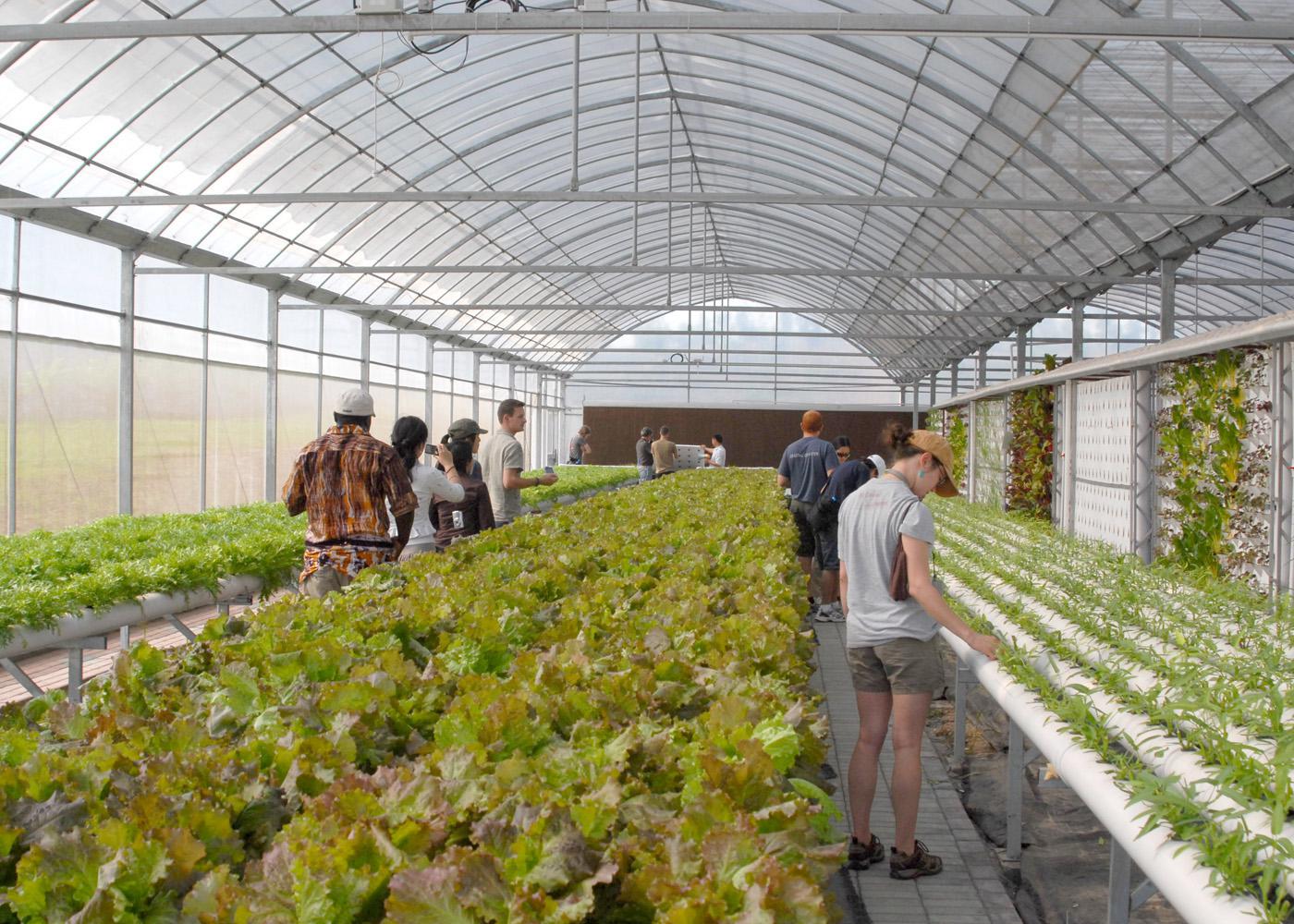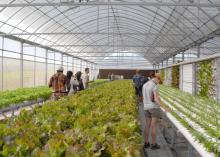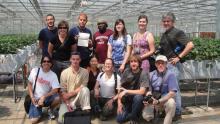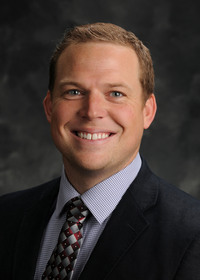Information Possibly Outdated
The information presented on this page was originally released on November 18, 2010. It may not be outdated, but please search our site for more current information. If you plan to quote or reference this information in a publication, please check with the Extension specialist or author before proceeding.
MSU students study Chinese agriculture
MISSISSIPPI STATE – Three Mississippi State University students spent three weeks in China studying that country’s extensive involvement with season-extension agriculture.
Season-extension technology allows a crop to be grown beyond the normal production window typically allowed by weather. One method gaining popularity in Mississippi is growing crops in high tunnels, which are unheated greenhouses that capture the sun’s heat, allowing crops to be grown earlier or later than normal.
Mengmeng Gu, an ornamental horticulture specialist with the MSU Extension Service, was instrumental in organizing this study-abroad opportunity for 13 students and faculty members from MSU, the University of Arkansas and the University of Florida.
“China’s climate zones are very similar to the climate zones in the United States, and it has less cultivated land,” Gu said. “China has 6 percent of the global export market and 4 percent of the global import market, while the United States has 8 percent of the export and 5 percent of the import market.”
China cultivates 40 percent less land per capita than the world’s average. Their efficient use of land for plant, animal and aquaculture production makes their system a good study for American students.
Gu received a $149,826 grant from the U.S. Department of Agriculture’s International Science and Education program in collaboration with the universities of Arkansas and Florida to take students and producers from the three states on tours of season-extension agriculture in China. The faculty-led program offered scholarships to participating students and producers to partially fund their trips.
“Participants visited universities, research institutions, production companies and markets. They observed firsthand season-extension research, production and marketing in China to get a broader perspective on season-extension technology,” Gu said.
The grant provides for reciprocal faculty visits, and Chinese scholars will be invited to MSU next year to give seminars on season-extension production and marketing.
Ernest Kwaku Kraka is an MSU doctoral student studying agricultural science with concentrations in weed science and entomology. He is from Ghana and has degrees from universities in Ghana, Germany and Great Britain.
“I participated in the program to broaden my knowledge of agriculture and help me to contribute to agricultural production systems in the world as well as in the United States,” Kraka said. “Global, sustainable production practices and food security, should not be underestimated, considering the challenge of feeding an increasing human population.”
A lack of technology and limited knowledge of the latest agriculture production systems are challenging global food production and security, he said.
“I was interested in studying agriculture in China because it is one of the most advanced countries, and it is able to handle its agricultural production and food security challenges,” Kraka said. “Sustainable agriculture is a cornerstone for any development, so the experiences that I gained will add diversity to my knowledge of agriculture and enable me to contribute to the world’s agricultural production systems.”
He said he learned a new form of agricultural production that does not rely solely on the seasonal climate to produce certain crops. Other advantages he saw to season-extension technology, such as high tunnel production, were a limited need to control weeds and insects and less energy consumption than in a traditional greenhouse.
This year’s trip to China was the first of three to be carried out with the USDA grant. Three MSU students, four UA students, three UF students and two UA professors went on the trip with Gu. She said applications for next year’s study-abroad opportunity will be accepted beginning in February.
More information on extended-season crop production and this study-abroad opportunity and international field trip for producers can be found at Extension.msstate.edu.








